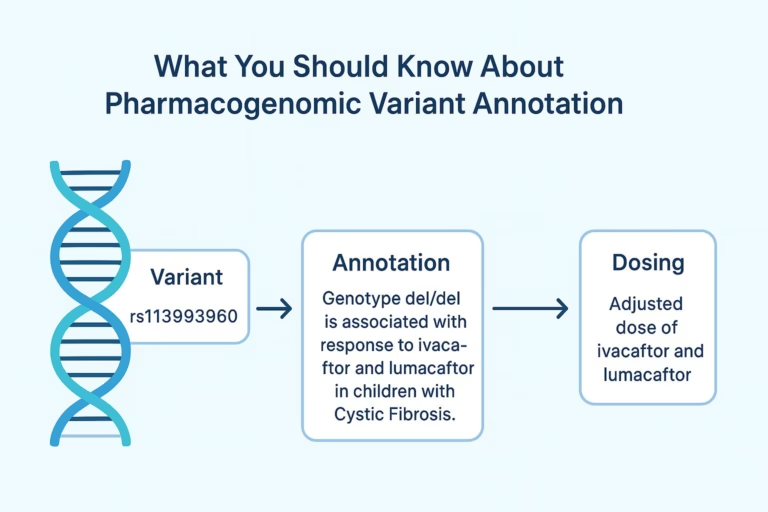Imagine taking a medication that causes more harm than good, nausea, dizziness, or worse, no effect at all. Now imagine having a genetic roadmap that helps your doctor avoid that path completely. That’s the promise of pharmacogenomics (PGx), the science of how your genes influence your response to medications.
Once the domain of research labs and elite hospitals, PGx testing is now more accessible than ever. Whether you’re dealing with treatment-resistant depression, taking multiple medications, or simply want more control over your health, you can order a test online or through your healthcare provider. But with options ranging from $150 to over $2,000, one big question remains: How much does a pharmacogenomics test really cost; and what are you getting for the price?
This blog breaks it down. We’ll look at what PGx testing typically costs, what affects the price, whether insurance or Medicare pays, which providers to consider, and how to choose a test that actually delivers value.
What Are You Paying For?
First, let’s understand what a pharmacogenomics test involves. PGx testing analyzes variations in genes, most commonly CYP2D6, CYP2C19, SLCO1B1, and others that affect how your body processes medications. These tests help predict whether a drug will work for you, if you might need a higher or lower dose, or if you’re at risk for serious side effects.
The complexity of the test, how many genes it covers, the clinical relevance of those genes, and whether it includes a professional review or just raw data, all factor into the cost.
What’s the Average Cost of a PGx Test?
Out-of-pocket costs for pharmacogenomics tests vary widely:
- Basic single-gene PGx tests: Typically range from $150 to $400
- Multigene panels: Most commonly cost $300 to $500
- Comprehensive whole-exome or whole-genome tests with PGx insights: Can range from $1,000 to $2,000+
At the lower end, you’ll find cheek-swab kits available online that test a few genes and return simple reports. At the higher end, more comprehensive clinical panels include in-depth analysis, pharmacist or physician review, and tailored recommendations.
Some high-end services also screen for nutrient metabolism and other traits not directly tied to drug response, which can inflate the price without adding much clinical utility.
Real-World Examples of PGx Test Pricing (2025)
To give you an up-to-date view, here’s what leading PGx providers charge for their pharmacogenomics tests, as well as key details on coverage and offerings:
| # | Company / Test | Focus Areas | Cost (Out-of-Pocket) | Includes | Insurance Coverage |
| 1 | GeneSight® Psychotropic Test | Mental health medications | ~$330 | Medication metabolism analysis; pharmacist and physician review | Covered by Medicare and many commercial insurers for specific conditions (e.g., treatment-resistant depression) |
| 2 | Rxight® | Cardiology, psychiatry, pain management | ~$399 | Tests 50+ genes, 200+ meds | Not typically covered |
| 3 | 10X Health Gene Test | Medication metabolism, nutrient absorption | ~$599 | Key PGx gene panels | Not covered |
| 4 | OneOme® RightMed | Broad medical applications | $349–$450 | Clinically actionable genes, pharmacist interpretation | May be reimbursed if ordered through a provider |
| 5 | Veritas Genetics / Nebula Genomics | Whole genome, optional PGx | $999+ | WGS + PGx module | Not covered—best for deep genomic profiling |
| 6 | SelfDecode | General health, wellness | ~$299 | Health + PGx panel | Not typically covered |
| 7 | Genomind PGx Test | Psychiatry, neurology | ~$399 | 24 genes, 130+ meds | Some insurance coverage for psychiatry uses |
| 8 | AltheaDx | Psychiatry, pain, cardiology | ~$500 | 20+ genes | Varies; some coverage for psychiatric uses |
| 9 | Sonic Genetics PGx Screen | Australia, broad meds | ~$197 (AUD) | 14 genes | Not typically covered (varies by location) |
| 10 | Admera Health | Cardiology, psychiatry, oncology | $300–$500 | Various panels available | Coverage varies by test and insurer |
Does Insurance or Medicare Cover PGx Testing?
Private Insurance:
Coverage depends on the insurer and the test. If you have a documented history of poor drug response, treatment resistance, or adverse drug reactions, your doctor may be able to justify medical necessity. Some insurers cover PGx testing for psychiatric or cardiovascular medications, but prior authorization is often required.
Medicare:
Medicare has limited coverage. Currently, it covers PGx testing only when there is strong evidence of benefit and only for specific drugs, such as warfarin or clopidogrel, under narrow conditions. Some Local Coverage Determinations (LCDs) may allow broader access, but this varies by region and medical history. Even then, a physician must order the test.
Medicare Advantage (Part C):
Some Medicare Advantage plans are beginning to offer broader PGx coverage, especially if tied to chronic disease management programs or value-based care initiatives. Still, most require documentation of clinical utility.
Is the Cost Worth It?
While PGx testing may seem expensive up front, several studies show that it can reduce long-term healthcare costs. For example:
- A 2023 study found that PGx testing for antidepressants reduced hospitalization costs by nearly $4,000 per patient per year.
- Other models show significant cost savings when used to guide prescribing for statins, opioids, and mental health medications, especially in older adults or those on multiple prescriptions.
- In one trial, using PGx to guide treatment led to better medication adherence, fewer side effects, and fewer ER visits, offsetting the test price within the first year.
So if you’re struggling with trial-and-error prescribing, managing polypharmacy, or trying to avoid adverse drug reactions, the upfront cost can quickly pay off.
How to Choose a Pharmacogenomics Test Provider
With so many options available, how do you choose the right test?
1. Know what you’re testing for
Some tests focus on mental health drugs, while others cover a broader range. Choose a provider that matches your health needs.
2. Look for clinical validity
Opt for tests that follow CPIC or FDA guidelines and are processed in CLIA-certified labs. Avoid tests that provide raw data with no actionable insights.
3. Check if professional interpretation is included
This is crucial. Reports should not only tell you your genotype but also what it means for your current or future medications. Pharmacist or physician consultation adds tremendous value.
4. Consider data privacy
Read the fine print. Some companies use your DNA for research or marketing unless you opt out. Look for clear consent policies.
5. Explore insurance options first
If you have a prescription history that supports it, ask your doctor to submit the test through your insurance plan. Even if it’s not fully covered, you may get partial reimbursement.
6. Don’t fall for upsells
Some consumer DNA services bundle PGx insights into lifestyle or ancestry tests. These often lack clinical depth. If your goal is to guide treatment decisions, stick to purpose-built medical-grade PGx tests.
Final Thoughts
Pharmacogenomics isn’t just about cutting-edge science, it’s about avoiding the guesswork in your treatment. And while the price of a PGx test can range widely, from $150 to $2,000, what matters most is choosing a provider that delivers trustworthy, medically relevant insights backed by real support.
If you’re looking for a good starting point, aim for a multigene test priced between $300 and $500, processed in a certified lab, and supported by a pharmacist or genetic counselor. Use insurance or Medicare if possible, but don’t let the lack of coverage stop you if you’re dealing with complex medication needs. When chosen wisely, a PGx test could be one of the most impactful health investments you’ll ever make.
Read our blog, So You Want To Take That Genetic Test, Have You Considered These Five Things?





